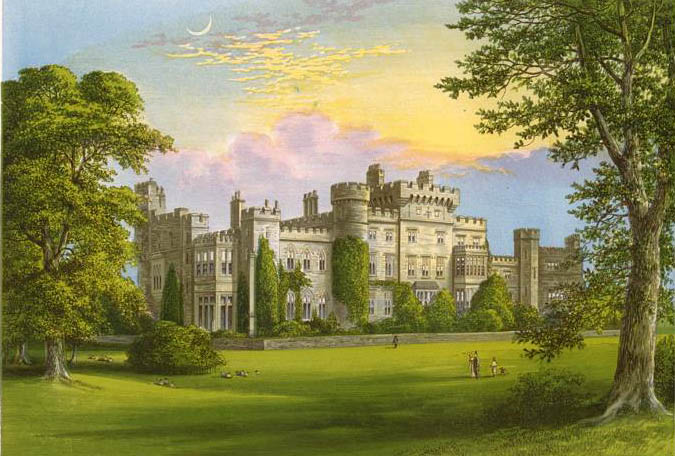|
John Glynne (other) (1722–1779), English lawyer and MP
{{hndis, name=Glynne, John ...
John Glynne may refer to: *Sir John Glynne (judge) (1602–1666), lawyer and member of parliament for Caernarvon, Westminster, and Caernarvonshire *Sir John Glynne, 6th Baronet (1712–1777), member of parliament for Flintshire and Flint See also *Glynne baronets *John Glynn John Glynn Serjeant-at-law of Glynn (1722–1779) was an English lawyer and politician who sat in the House of Commons from 1768 to 1779. Glynn was born to a family of Cornish gentry. He inherited his father's estate at Glynn in the parish of ... [...More Info...] [...Related Items...] OR: [Wikipedia] [Google] [Baidu] |
John Glynne (judge)
Sir John Glynne KS (1602 – 15 November 1666) was a Welsh lawyer of the Commonwealth and Restoration periods, who rose to become Lord Chief Justice of the Upper Bench, under Oliver Cromwell. He sat in the House of Commons at various times between 1640 and 1660. Early life John Glynne was born at Glynllifon, Carnarvonshire, the second son of Sir William Glynne of Glynllifon, a very ancient family that claimed a fanciful descent from Cilmin Droed-tu, founder of one of the 15 tribes of North Wales, by Jane, the daughter of John Griffith (of Plas Mawr), Caernarvon. His elder brother was Thomas Glynn, MP for Caernarvonshire. Glynne was educated at Westminster School and Hart Hall, Oxford, where he matriculated 9 November 1621, aged 18.Alumni Oxonienses He entered Lincoln's Inn on 27 January 1620 and was called to the Bar on 24 June 1628.Jenkins Career In April 1640, Glynne was elected Member of Parliament for Westminster in the Short Parliament. He was re-elected MP for West ... [...More Info...] [...Related Items...] OR: [Wikipedia] [Google] [Baidu] |
Sir John Glynne, 6th Baronet
Sir John Glynne, 6th Baronet (1713 – 1 July 1777) was a Welsh politician and landowner. Glynne was the third son of Sir Stephen Glynne, 3rd Baronet, and succeeded to the baronetcy after the successive deaths of his father and elder brothers in 1729 and 1730. In November of the latter year, he matriculated from The Queen's College, Oxford. Sir John stood as Member of Parliament for Flint in 1734, but was defeated after spending £35,000 on the election. However, in 1741, he was elected MP for Flintshire, which he represented until 1747. In 1751, Glynne was High Sheriff of Flintshire, and in 1752, built Hawarden Castle on his estate. He was returned to Parliament again for Flint in 1753, and represented that constituency for the rest of his life. He was made a D.C.L. by Oxford in 1763. In 1731, he married the heiress Honora Conway, by which match he almost doubled his estates at Hawarden. They had thirteen children: *a son, died young *John Conway Glynne (died 7 May 1773), m. ... [...More Info...] [...Related Items...] OR: [Wikipedia] [Google] [Baidu] |
Glynne Baronets
The Glynne Baronetcy, of Bicester in the County of Oxford, was a title in the Baronetage of England. It was created on 20 May 1661 for William Glynne, the former Member of Parliament for Carnarvon. He was the son of Sir John Glynne, Lord Chief Justice during the Commonwealth. The second Baronet sat as Member of Parliament for Oxford University and Woodstock. The sixth Baronet was Member of Parliament for Flintshire and Flint. The title became extinct on the death in 1874 of Sir Stephen Glynne, 9th Baronet. The family estates, including Hawarden Castle in Flintshire, had been rescued from bankruptcy by the wealth of Sir John Gladstone, whose son William Ewart Gladstone (the Liberal Prime Minister) had married the ninth Baronet's sister Catherine; on his death, they passed to Catherine and William's eldest son William Henry Gladstone. Glynne baronets, of Bisseter (1661) * Sir William Glynne, 1st Baronet (1638–1690) * Sir William Glynne, 2nd Baronet (1663–1721) * (7 Fe ... [...More Info...] [...Related Items...] OR: [Wikipedia] [Google] [Baidu] |
%2C_by_follower_of_Sir_Peter_Lely.jpg)
